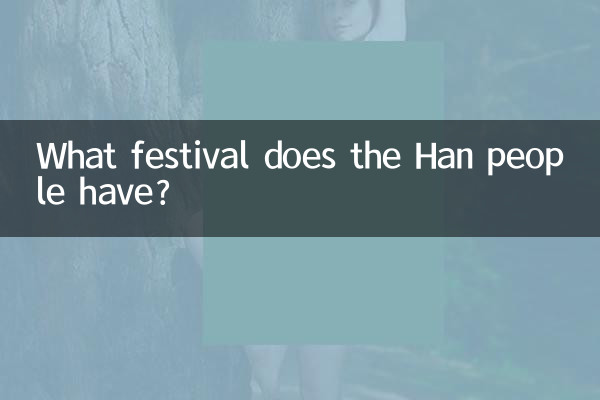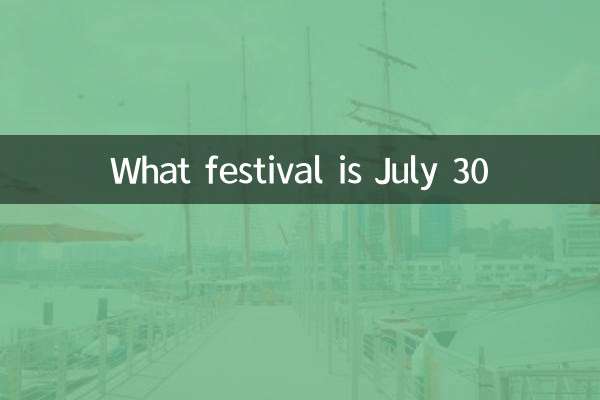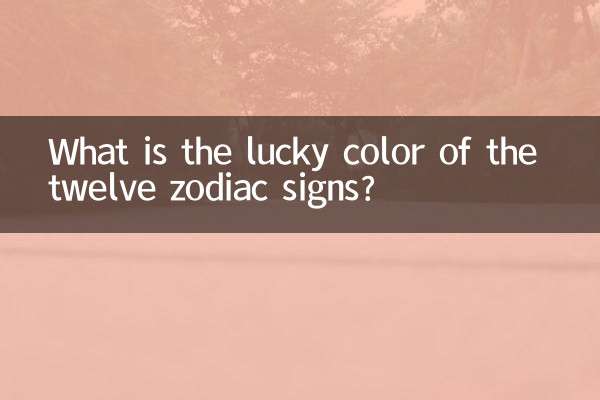What festival does the Han people have?
As the main ethnic group of China, the Han people have rich and diverse traditional festivals. These festivals not only carry a long history and culture, but also reflect the living customs and spiritual beliefs of the Han people. The following are the main festivals of the Han people and their related introductions.
1. List of major festivals of the Han people

| Festival name | Time (Lunar calendar) | Main customs |
|---|---|---|
| Spring Festival | First day of the first lunar month | Post Spring Festival couplets, set off firecrackers, eat New Year's Eve dinner, and greet New Year's greetings |
| Lantern Festival | The fifteenth day of the first lunar month | Appreciate lanterns, eat lanterns, guess lantern riddles |
| Qingming Festival | April 4 or 5th | Tomb sweeping, ancestor worship, outing, and willow planting |
| Dragon Boat Festival | May 5th | Eat rice dumplings, race dragon boats, and hang mugwort |
| Chinese Valentine's Day | July 7th | Beg for the Weaver Girl, Eat the Qiaoguo |
| Zhongyuan Festival | July 15th | Worshiping ancestors, putting river lanterns, burning paper money |
| Mid-Autumn Festival | August 15th | Watch the moon, eat moon cakes, reunion |
| Double Ninth Festival | Ninth day of September | Climb up high, enjoy chrysanthemums, drink chrysanthemum wine |
| winter solstice | December 21 or 22nd Gregorian calendar | Eat dumplings, worship ancestors, count nine |
| Laba Festival | The eighth day of the twelfth lunar month | Drink Laba porridge and pickled Laba garlic |
2. Festival cultural connotation
Most of the traditional festivals of the Han people are related to farming culture, natural solar terms or historical legends. For example,Spring FestivalIt symbolizes bidding farewell to the old and welcoming the new, and is the most important festival of the year;Qingming FestivalIt reflects the remembrance and admiration for ancestors;Dragon Boat FestivalIt is closely linked to Qu Yuan's legend and expresses people's respect for patriotism.
These festivals are not only a time for family reunion, but also an important carrier for inheriting culture. For example,Mid-Autumn FestivalThe custom of watching the moon and eating moon cakes symbolizes reunion and happiness;Double Ninth FestivalThe climbing activities symbolize health and longevity.
3. The modern significance of the festival
With the development of society, traditional Han festivals are also constantly evolving. Many festivals incorporate modern elements, such asSpring Festivalelectronic red envelopes,Lantern FestivalOnline riddles and so on. These changes not only retain the essence of traditional culture, but also adapt to the lifestyle of modern people.
In addition, traditional festivals have also become an important link to promote national unity and cultural exchanges. For example,Dragon Boat FestivalThe dragon boat racing has gradually become international, attracting participants from all over the world.
4. Summary
The traditional festivals of the Han people are rich and colorful, with a profound historical heritage and full of the vitality of the times. They are not only an important part of Han culture, but also a common spiritual wealth of the Chinese nation. By celebrating these festivals, we can not only feel the charm of traditional culture, but also better inherit and promote the national spirit.

check the details

check the details